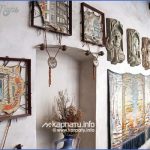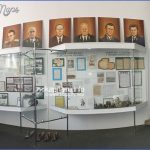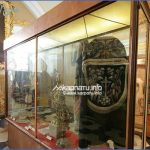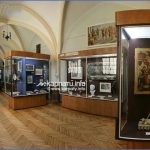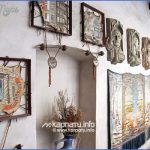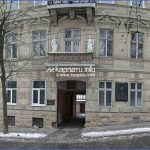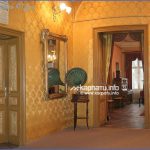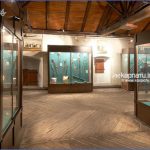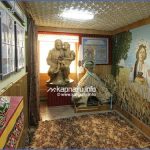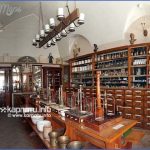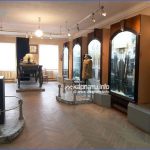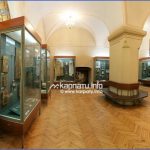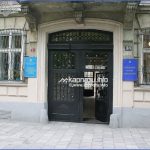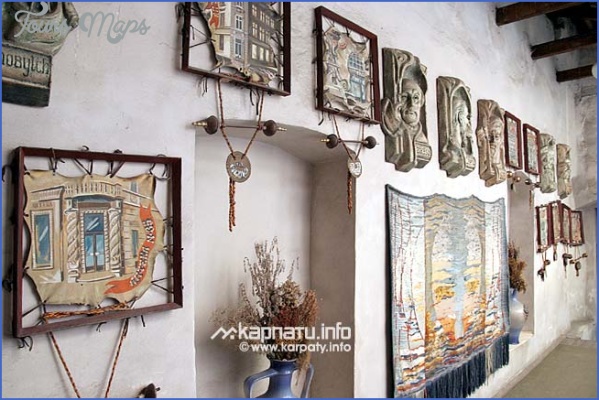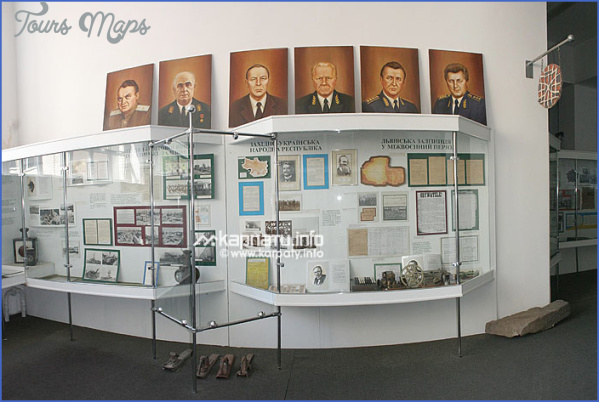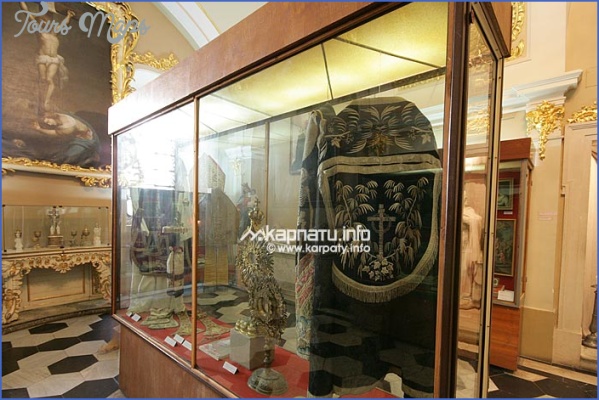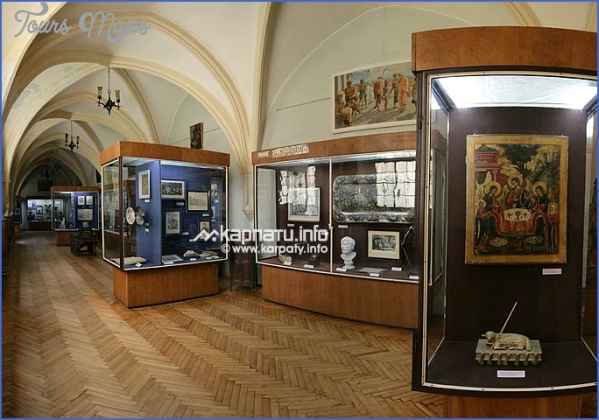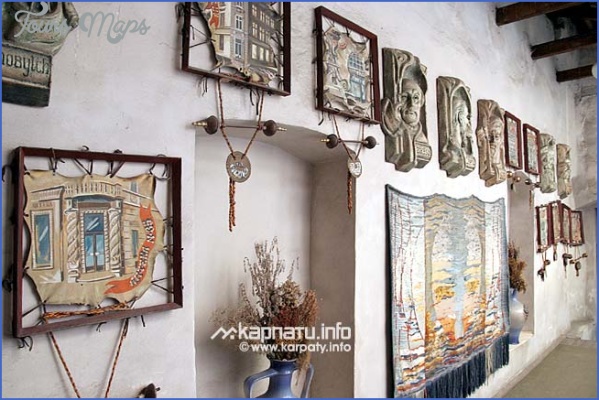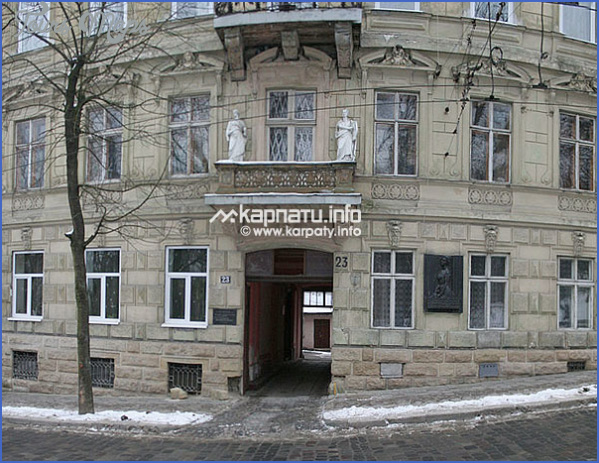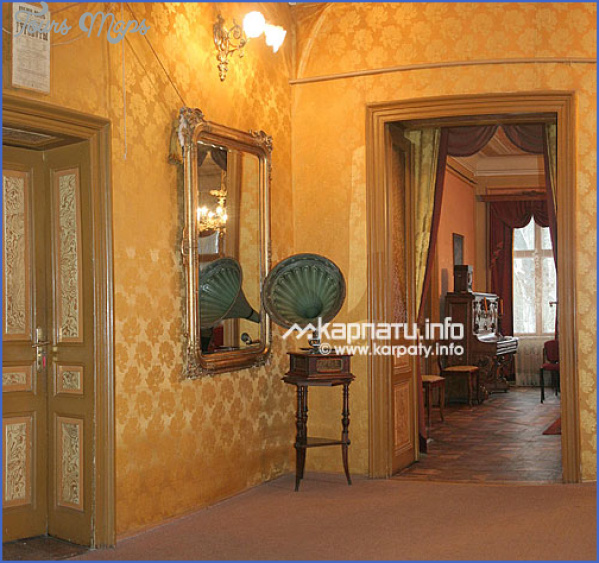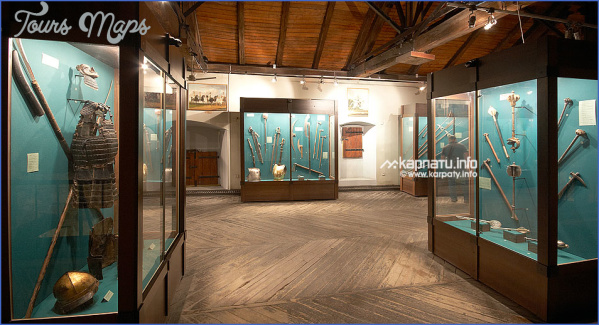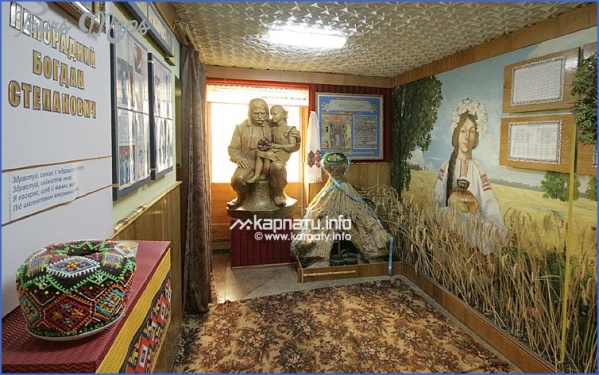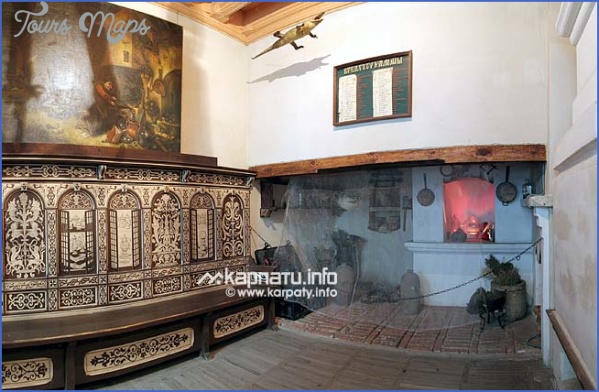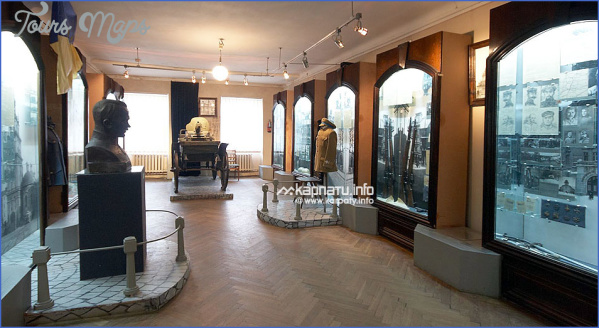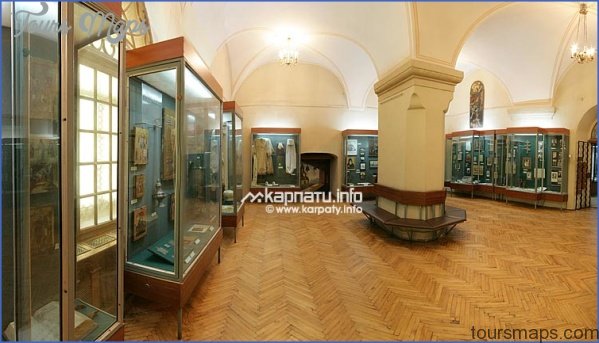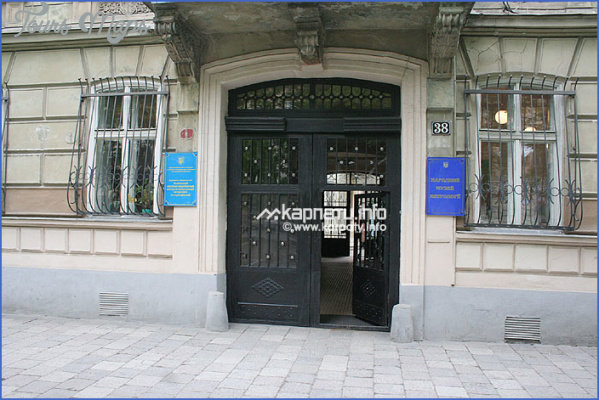LYUDKEVYCH MUSEUM
The widow of the Ukrainian composer Stanislav Pylypovych Lyudkevych (1879-1979) still lives in their house in L’viv, near the border with Poland. A leading figure of his generation, ethno-musicologist and conductor as well as composer, he was 95 when he married Zenebie Stunder, his former student and later his assistant, in 1973. Until then he had lived with his sister and since 1961 in a tree-lined street, renamed in his memory, on a hill above L’viv. There is a portrait relief of him on the house; his widow, who is preparing a catalogue of his works and a two-volume biography, lives on the ground floor and looks after his legacy upstairs. After his death the Soviet government wanted to establish a museum elsewhere, possibly Kiev, but she resisted, and the long-term future of the museum must still be in doubt. The story of Lyudkevych, as related by his widow, is compelling. Although he spent most of his life in L’viv (he was born in what was then the Polish part of the Austro-Hungarian empire), he served in the Austrian army in 1903 and again during World War I, and was held prisoner by the Russians in Tashkent until 1917. After the Revolution he returned to L’viv and the Lysenko Music Institute, L’viv, where he had been director. He composed for large vocal and instrumental forces, including symphonic cantatas and poems, two operas, folksong arrangements, a violin concerto and two piano concertos. By marrying his wife, he saved her from imprisonment when she published a book about his music that the authorities considered subversive.
LYUDKEVYCH MUSEUM Photo Gallery
Mrs Lyudkevych maintains a complete archive of her husband’s manuscripts, letters, programmes and other documents. The three rooms given over to the museum include a sitting-room with his grand piano and music library, several oil portraits, a bronze bust and the many awards he received; his bedroom is maintained just as he left it and displays a death mask and a cast of his right hand; the third room is devoted to a photographic survey of his life, supported by concert programmes and Soviet-era editions of his music.
Maybe You Like Them Too
- Top 10 Islands You Can Buy
- Top 10 Underrated Asian Cities 2023
- Top 10 Reasons Upsizing Will Be a Huge Travel Trend
- Top 10 Scuba Diving Destinations
- World’s 10 Best Places To Visit

